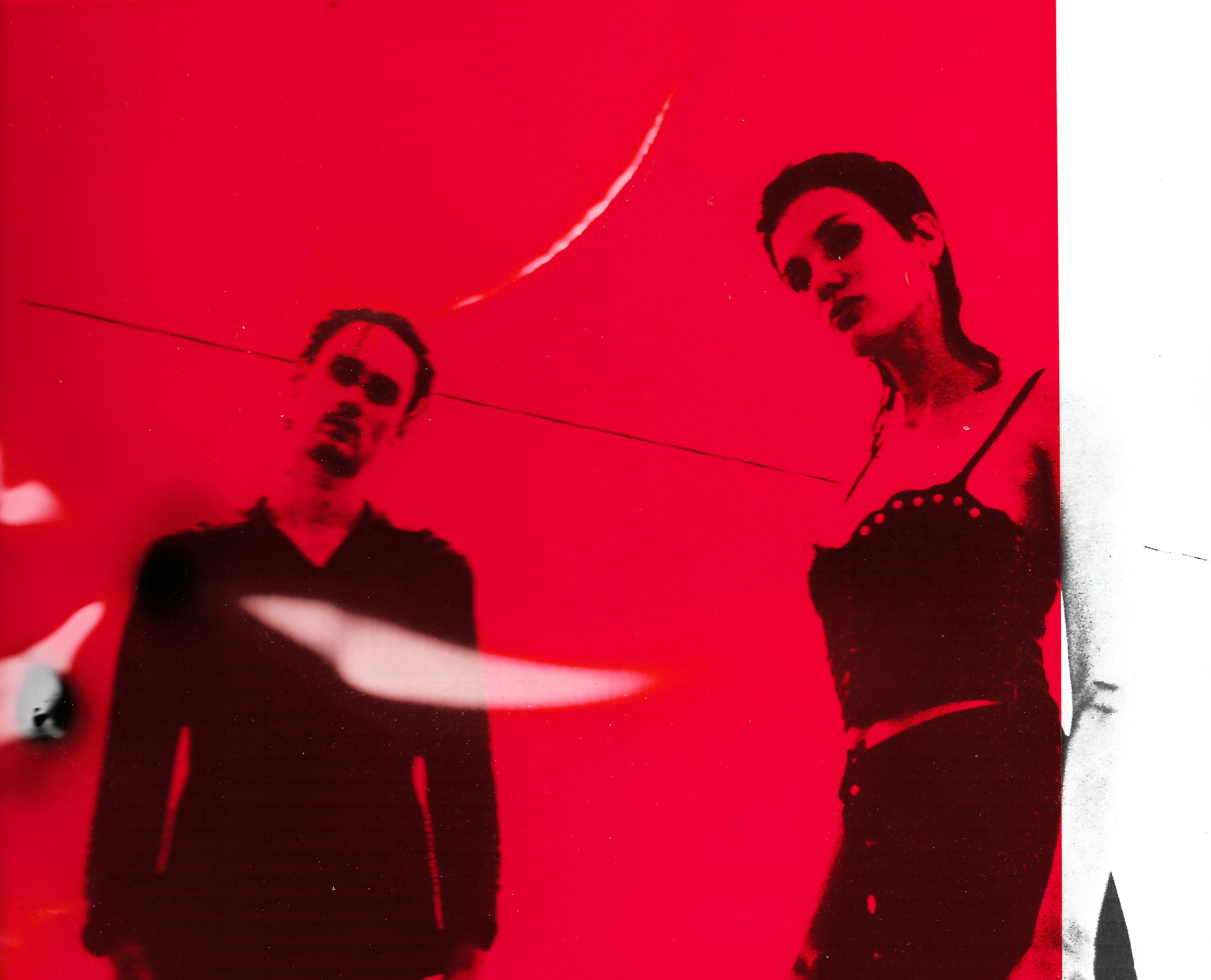Exclusive: Lost Under Heaven’s Dark Lullaby
Partners in goth-pop and eco-activism, Ellery Roberts and Ebony Hoorn use art as protest.
The tradition of the husband-and-wife musical duo has been subject to parody, conjuring saccharine string accompaniments and veneers of marital Kumbaya. But Ellery Roberts and Ebony Hoorn, partners in life and creativity, defy notions of the blissfully ignorant couple. In fact, as the alternative outfit Lost Under Heaven, they make an art of confronting ultimate inconvenient truths—particularly those surrounding environmental destruction and climate change.
Having released their second LP, Love Hates What You Become, in January, Roberts and Hoorn are increasingly focused on their eco activism. “Not that our creative work is on the side-line, but it seems a bit self-serving,” Roberts recently told us. “There’s more important work to be done at this moment.”
In addition to environmental calamities, the couple is just as preoccupied with that distinctly Euro-American toxicity—the rise of the alt-right. Their most recent release, an extended cut and video for the track “Black Sun Rising,” references the loaded symbol of the black sun (made infamous by Shakira), one that feels all too apt for the current moment. Here, the couple explains the complex meanings behind their latest collaboration.
V Tell us about each of your initial introductions to environmental issues or activism in general.
Ellery Roberts It’s progressed since around 2015, when I read This Changes Everything: Capitalism vs. The Climate by Naomi Klein. That was the first in-depth, eye-opening assessment of the situation I had read. And by the time you finish it, you’re pretty sold: It is the defining issue of our time, and everything else is kind of a distraction.
Ebony Hoorn We were living [together] in Amsterdam at the time. From then on, we started going more to talks and film screenings, reading books, and in general engaging with others who were [interested in] these same issues.
V You’re both involved in the eco-activist group Extinction Rebellion. Do you consider “Black Sun Rising” a direct extension of the environmental work you’ve been doing outside of music these days?

EH I guess we’ve been … what do you say, environmentally aware? For 5 years [or so]. We wrote the song in 2016, before we got involved with Extinction Rebellion, but I think [these] have been underlying themes in a lot of our songs [for a while now]. This song, “Black Sun Rising,” is more explicit. As the times get increasingly hazardous, and catastrophe [feels more imminent], you know, the awareness needs to be more widespread. So the song is more overt rather than metaphorical.
V Tell us about the meaning behind the “Black Sun”—what has it symbolized in the past, and what does it mean now?
EH Originally, for me, the black sun was part of my graduate thesis, a multimedia installation having a lot to do with the environment. It was basically a prediction of a future [reality]—an [environment] obscured by dust, which was kind of a vision I’d had. How it relates to the song is, we were writing it in the summer of 2017, when the neo-Nazi riots in Charlottesville were going on. And the lyrics just naturally fell into place: “I see a black sun rising.”
V Do you see a connection, direct or indirect, between the rise of white supremacy, or at least the form in which we’re seeing it now, and environmental destruction?
ER [Symbolically speaking], we relate it back to Jungian [theory]: the black sun is like the shadow self, or the things we don’t want to look at, or don’t want to admit to ourselves. And yeah, I mean, both the environment and the rise of the far right [are] systemic issues. We live in a [system of] incredible inequality and advanced capitalism. So, I see the rise of the far-right being a reaction by people, living in that system, who have no joy. And finding scapegoats to put the blame on. And it’s just one of the tragedies of our time, at the moment.

V You’re both interested in or have worked with Genesis P-Orridge, [pioneering artist/musician and practicing occultist]. Amid the destruction going on in the real world, do you take solace in some of the metaphysical or supernatural teachings of people like P-Orridge?
ER For sure. There’s that Blake quote, “I must invent the system or be a slave to another man’s,” which I think is what people like Genesis, William Burroughs, and Brion Gysin have [modeled]. Like refusing those control structures.
EH You have to face it, but you then eventually come out [the other side]. Like a massive transformation.